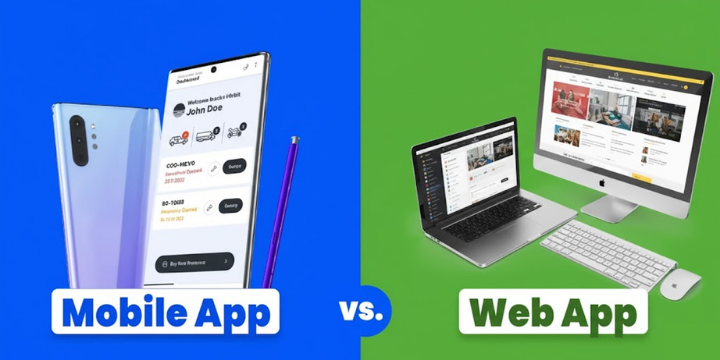Introduction
online presence is very important in the digital era for business growth. Website or mobile app for my business? That’s the question for business growth. Firms need efficient branding strategies for long-term success. The Minterminds team, led by Dinesh Kumar, understands that a well-crafted strategy is the foundation for long-term success. With expert guidance and a vision for innovation, the team focuses on delivering solutions that help businesses grow sustainably and stay ahead in the digital era. Demand for web and mobile applications from businesses in all sectors is rising. Web and app popularity have steadily increased over the past decade; 92% of time on electronic devices is spent in applications. Web apps have the advantage of being usable without download. Users prefer and rely on browsers for information. However, today’s customers demand a great mobile experience at their fingertips, prompting organizations to adopt modern app interfaces.
Which channel should a business choose for faster growth? Web or mobile? Both appear equally effective. Many people utilize both, switching as needed. Activity depends on the goal and event. Hence, business growth depends not on the platform but on technology and strategy. An examination of web and app development technologies can help determine the optimal choice.
Understanding Web Applications
Web and mobile applications are almost synonymous with the internet, yet distinct enough to cause confusion. A web application is software accessible and used over the internet through a desktop or laptop web browser. Its code is stored on an external remote server and delivered to the user’s device via a web browser. Google Docs and Facebook are the best examples of web browser. One of the biggest advantages of using web applications is platform independence. They can be accessed from any device with a modern web browser. This feature offers cost efficiency and ease of maintenance.
However, platform independence is also a major drawback. Despite responsive designs adapting UI elements, the overall look and feel and performance can’t match native mobile apps. Since web apps heavily rely on browsers, they cannot fully exploit hardware functions of devices like cameras or GPS, leading to a less enjoyable user experience. They also suffer from slow speed. Although they benefit from low development and maintenance costs, web apps face considerable challenges in differentiation and branding. Furthermore, search engine limitations reduce their efficiency in attracting target customers.
Mobile apps are software programs developed for use on smartphones, tablets, or other mobile devices. The key characteristic is their capability to function even in the absence of the Internet. These types of applications offer immediate answers to the end user via a user-friendly graphic interface that can incorporate audio and/or video. The development of a mobile app is generally long, arduous, and costly.
Advantages And Disadvantages Of Mobile Applications Are As Follows:
Mobile App Pros: –
- Accessibility through the native device environment
- Intuitive user experience
- Higher responsiveness and transaction speed
- Optimized UI layout across all platforms
- Capability to work offline, even in the absence of the Internet
- Discovery through keyword search
- Device capability integration
- Potential solution being only a mobile-friendly web design
mobile App Cons: –
- Time-consuming and costly development process
- Intensive maintenance
- Marketing and promotion expenses
- Lack of Google indexing
- Complex SEO requirements
If you’re still unsure whether a mobile app or website is the right choice for your business, don’t worry — Minterminds has you covered! Our experts will help you choose the perfect digital solution and craft a smart strategy to drive your business growth and online success.




